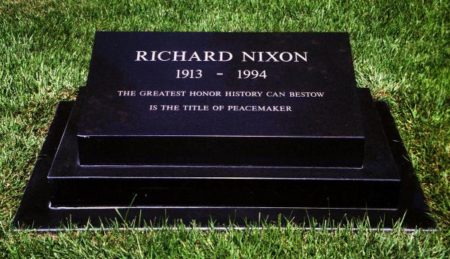 This post is a roundup of some bloggers’ responses to this triad:
This post is a roundup of some bloggers’ responses to this triad:
- Jesus died.
- Jesus was fully divine.
- No fully divine being has ever died.
Sadly, my response has not taken off. The reason, in my view, is the common over-estimation of the scriptural evidence and arguments for 2.
In his post “The Christological Triad of Dale Tuggy,” James Goetz says,
The Incarnation was a hypostatic union of an uncreated divine nature and a created human nature. The death of Christ was the biological death of Christ while his human spirit and divine nature continued to exist.
Evidently he denies 3. But then, I’d like to know his response to the case I made for 3 from the NT and from reason in the original presentation.
 He also complains of the “ambiguities” of my triad. But there aren’t any. By “Jesus,” I’ve explained, I mean the man. I define being “fully divine” as being divine in the way the one God is divine. And by “died” I mean just what we mean when we say a truth like, e.g. “Richard Nixon died.” I’m no Tricky Dick. He’s complaining because it is difficult to translate my straightforward statements into what a creedally-compliant-catholic-Christian ought to say. But this is because of the extreme difficulty of understanding fully-creed-compliant christology, and how this relates to Christ’s apparent death.
He also complains of the “ambiguities” of my triad. But there aren’t any. By “Jesus,” I’ve explained, I mean the man. I define being “fully divine” as being divine in the way the one God is divine. And by “died” I mean just what we mean when we say a truth like, e.g. “Richard Nixon died.” I’m no Tricky Dick. He’s complaining because it is difficult to translate my straightforward statements into what a creedally-compliant-catholic-Christian ought to say. But this is because of the extreme difficulty of understanding fully-creed-compliant christology, and how this relates to Christ’s apparent death.
At Corby Amos’s “Odd in the Truth,” he doesn’t think there currently is a compelling, orthodox solution.
I’m suggesting it’s time to employ language and concepts that are more effective at communicating and defending the Doctrine of the Trinity at this time in Church history. This is…after all…what the Church Fathers did so well. They spoke into their historical setting with the tools their setting provided. To honor the work of the Church Fathers, is to do precisely what they did.
But sadly, in fact, when some new field does come along to try and do this very thing – like analytic theology – it’s ostracized by many of those in the systematics and patristics fields. It’s smugly labeled as being “novel”.
Dale Tuggy’s trilemma is the least of the Trinitarian’s concerns. It’s merely the tip of the iceberg.
I’m not sure, but I think that he’s assuming that 2 is off the table, that this is just a core teaching of Christianity, rightly understood. If you just deny, that just solves the problem, and we can affirm 1 and 3 as we should. Of course, you’ll face the wrath of the catholic establishment(s). But if you’re goal is NT Christian teaching, 2 really isn’t a part of it, though it is continually projected into the NT. NT writers are quite content with their human Messiah, now raised from the dead and exalted to God’s right hand – and all of this without a divine nature. It’s as if God was with him, or something.
Also, I’m more pessimistic than he is about the project of rational reinterpretations of problematic doctrines. Generally, they turn out to not be the same claims as the ones we think we’re thereby defending. I think that reforming revision is the way to go.

Dale
I listened with interest to your podcast on why Jesus had to suffer and die. You mentioned the OT metaphors of the Lamb and Goat but why not mention the explanation Jesus gives to Nicodemus for his suffering and death?
“And as Moses lifted up the serpent in the wilderness, even so must the Son of man be lifted up:
That whosoever believeth in him should not perish, but have eternal life.”
The reason for Jesus going to the cross seems to be clear- without this “lifting up” the “whosoever” remain in the default – that is to perish.
Jesus must have thought a lot on this example of Moses, at God’s direction, making a fiery (brass) serpent and lifting it up on a pole.
“And the LORD said unto Moses, Make thee a fiery serpent, and set it upon a pole: and it shall come to pass, that every one that is bitten, when he looketh upon it, shall live.”
We can couple this with the verse you quoted in your talk, from Hebrews:
Forasmuch then as the children are partakers of flesh and blood, he also himself likewise took part of the same; that through death he might destroy him that had the power of death, that is, the devil;
There does not seem to be much discussion on this aspect of Jesus destroying the devil by lifting up a (dead) serpent as a reason for the suffering/(learning of obedience) that he endured. Did Jesus see the fiery serpent as something external to him or something internal? Clearly the Hebrews kept it as an external icon until Hezekiah had it destroyed.
What are your thoughts?
Hi Dale, Here’s my response to your original presentation (http://theoperspectives.blogspot.com/2017/05/christological-triad-dale-tuggy-ii.html). Pax, Jim
Hi Dale, I’m hoping to eventually see a response to “The Christological Triad of Dale Tuggy II” (http://theoperspectives.blogspot.com/2017/05/christological-triad-dale-tuggy-ii.html). Pax, Jim
Re-reading this it’s rather clumsily put. There are a couple of issues I’m thinking about here.
On death as loss of normal natural life functions God can’t die because God is immortal. On death as loss of normal biological processes it would seem to be the case that God can’t die because God is immaterial. But this just leads to what sense can be made of the incarnation. If it is possible for God to be incarnated (as opposed to something like human possession), is it also possible for God to die a human death? The focus here would probably be on ‘normal’. Can ‘normal’ be used of the biological processes of God incarnate?
The other issue is the evidence you give for expanding the definition is that angels, which are immaterial, can be killed and therefore, it seems, can die. Yet a verse like Matthew 10:28 which claims that body and soul can be killed independently of each other seems to be inconsistent with the claim that to die is to ‘lose all or most…’ since it appears that humans can die twice (or in two ways). The proverbial eating and also having of cake. So either the application of the word can be used of the respects in which something can die (bodywise, soulwise &c.) or the scope restricted to, say, normal biological processes. In both cases this returns to the possibility of incarnation in general.
But say this distinction is correct, it only seems to push the problem up a level. Perhaps there is a more general term that can be applied to God, angels and men. So, for example, Jesus is fully divine and no fully divine being has ever been killed. But where we seem to end up following this path is the general problem of applying apparently contradictory predicates to Jesus and the two natures. If this is the case, then any account that explains how God died but also does not explain how God did not know everything doesn’t really move things forward.
This was addressing my previous comment below.
I think one of the interesting things about this conundrum is the paradox of human nature. All humans appear to die (lose homeostatic biological function and expressed identity) yet all are apparently eternal. So, humans die (the common meaning of death), yet are eternal (judgements, eternal state, etc.). So likewise Jesus (the union of the eternal and corporeal), died in the normal human and earthly sense, yet lives in the manner of the eternal nature of the non-corporeal aspect of existence. So, in reality and semantics, Jesus–even as God–died. Yet Jesus, a complex entity, lives on in his eternal and Divine nature.
While logic is the lingua franca of reason, it is possible, if not very likely, that our formulae are not fully applicable to at least some aspects of the Divine in light of the total complexity of the unseen realm. Just like plane geometry defines a triangle that sums its 3 angles to 270 degrees as impossible, spherical geometry allows, even demands, this reality. Neither type of triangle is less or more real, but one requires more dimensionality for existence and explanation.
Thus, most Christians who accept the apparent paradox of the Trinity will accept this understanding because we recognize there is greater complexity and order that is unrevealed to us. I can fantasize whimsical solutions, but I am content to accept the statements as reality.
Perhaps this is in part of what is meant by the verses in Isaiah:
Is. 55:8 “For My thoughts are not your thoughts, Nor are your ways My ways,” declares the Lord. 9“For as the heavens are higher than the earth, So are My ways higher than your ways, And My thoughts than your thoughts.”
Hi Dale,
Thank you for responding to my blogpost. I struggle with responding to a podcast compared to written work because I lack transcription skills needed to quote a podcast. After I complete a current freelance project in my so-called free time, I will blog a response to your written outline on the slideshow from your original presentation in Podcast 145, which you referenced in this blogpost.
Here, I will (1) address a suggestion that you made about me and (2) outline what I meant by ambiguity in the first statement of your triad, “Jesus died.”
First, you suggested in this blogpost that I support a “fully-creed-compliant christology.” I have yet to address this in my academic publications or blog, but my Trinitarian theology and two-nature (divine-human) Christology rejects two points of creedal doctrines. The two points that I reject are (1) eternal generation and (2) eternal spiration/procession. I am not alone in this among contemporary Trinitarians, and I will eventually address this in detail. For now, I will coin a term for this and call it “Post-patristic Trinitarianism.”
Second, you indicated in Podcast 181 that death implies “diminishment.” (I would have preferred to respond to a transcript of your podcast, but I understand the expenses of transcription.) I thought that was ambiguous because the statement “Jesus died” means different things to adherents of different Christologies.
As you noted, in the context of two-nature (divine-human) Christology, I reject your third statement “No fully divine being has ever died.” I am surprised that other adherents of two-nature Christology accepted your third statement, but I suppose that resulted from the difficulties of discussing statements in the context of analytic theology.
You expressed interest in my response to your Podcast 145. As I stated in my first paragraph of this reply, I will write a reply to the written outline of the respective podcast after I finish a current freelance.
I also want to add that I do not approve of Steve Hayes’s use of inappropriate language toward you. And I am glad that no respectable journal would publish that language.
Pax,
Jim
Do you think the trilemma depends on your definition of death as the loss of all or most of one’s normal natural life functions or that it would still work with the initial definition in your presentation that death is loss of biological functions?
Comments are closed.